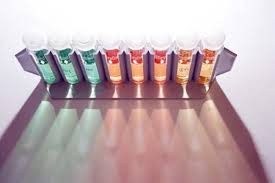Total Alkalinity is the amount of alkaline salts such as carbonates, bicarbonates and hydroxide ions that are present in pool water. It is important to understand the part total alkalinity plays in the chemistry of water because it acts as a buffer for the movement of PH.
If the alkalinity of the water is too low, then the PH can be difficult to control and move up and down very quickly when you are trying to adjust it. If the alkalinity is too high, then the opposite is the case and the PH level is difficult to adjust.
As mentioned previously the PH level of the pool water effects the efficiency of the chlorine in sanitising the water and it is therefore important to try and keep the PH at the level where the chlorine is most efficient.
By maintaining the correct level of total alkalinity of the water you are in effect stabilising the PH level which in turn provides the optimum conditions for the chlorine to work. This also results in reducing maintenance costs as less chlorine is needed and less acid is required to continually adjust the PH.
If the alkalinity of the water is too low, then the PH can be difficult to control and move up and down very quickly when you are trying to adjust it. If the alkalinity is too high, then the opposite is the case and the PH level is difficult to adjust.
As mentioned previously the PH level of the pool water effects the efficiency of the chlorine in sanitising the water and it is therefore important to try and keep the PH at the level where the chlorine is most efficient.
By maintaining the correct level of total alkalinity of the water you are in effect stabilising the PH level which in turn provides the optimum conditions for the chlorine to work. This also results in reducing maintenance costs as less chlorine is needed and less acid is required to continually adjust the PH.


